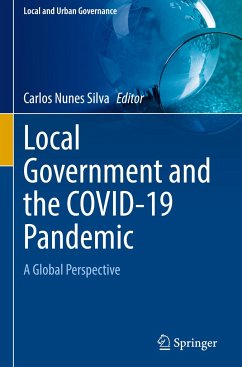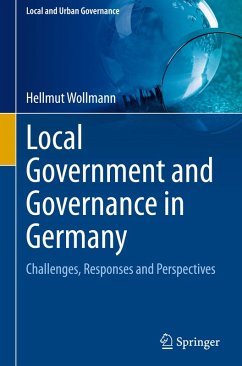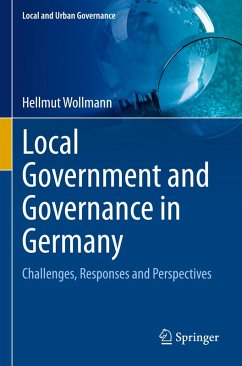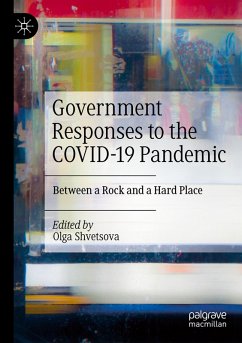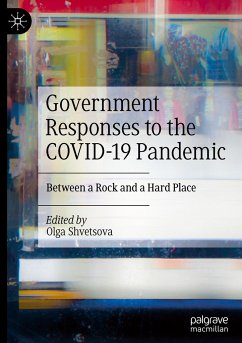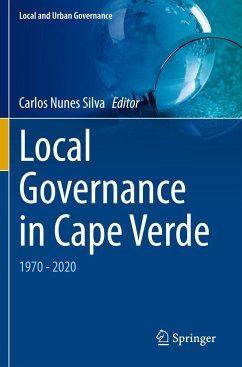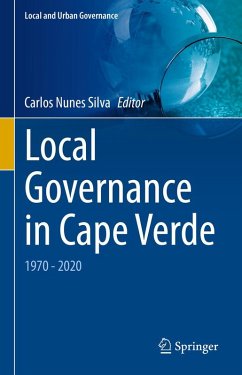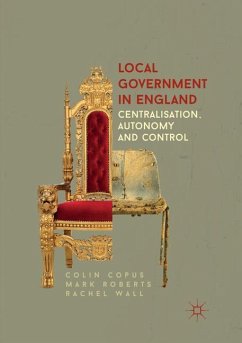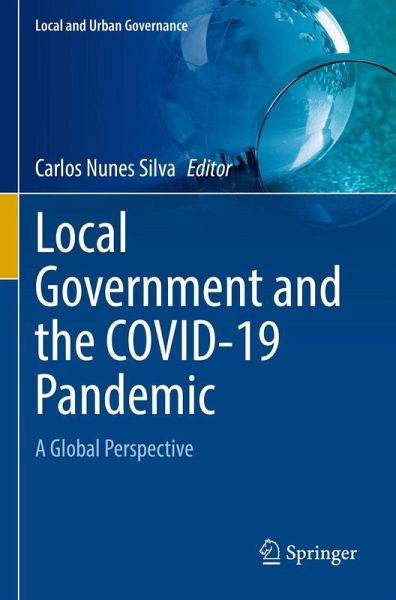
Local Government and the COVID-19 Pandemic
A Global Perspective
Herausgegeben: Nunes Silva, Carlos
Versandkostenfrei!
Versandfertig in 6-10 Tagen
129,99 €
inkl. MwSt.

PAYBACK Punkte
65 °P sammeln!
The book provides a global perspective of local government response towards the COVID-19 pandemic through the analysis of a sample of countries in all continents. It examines the responses of local government, as well as the responses local government developed in articulation with other tiers of government and with civil society organizations, and explores the social, economic and policy impacts of the pandemic. The book offers an innovative contribution on the role of local government during the pandemic and discusses lessons for the future. The COVID-19 pandemic had a global impact on publi...
The book provides a global perspective of local government response towards the COVID-19 pandemic through the analysis of a sample of countries in all continents. It examines the responses of local government, as well as the responses local government developed in articulation with other tiers of government and with civil society organizations, and explores the social, economic and policy impacts of the pandemic. The book offers an innovative contribution on the role of local government during the pandemic and discusses lessons for the future. The COVID-19 pandemic had a global impact on public health, in the well-being of citizens, in the economy, on civic life, in the provision of public services, and in the governance of cities and other human settlements, although in an uneven form across countries, cities and local communities. Cities and local governments have been acting decisively to apply the policy measures defined at national level to the specific local conditions. COVID-19 has exposed the inadequacy of the crisis response infrastructures and policies at both national and local levels in these countries as well as in many others across the world. But it also exposed much broader and deeper weaknesses that result from how societies are organized, namely the insecure life a substantial proportion of citizens have, as a result of economic and social policies followed in previous decades, which accentuated the impacts of the lockdown measures on employment, income, housing, among a myriad of other social dimensions. Besides the analysis of how governments, and local government, responded to the public health issues raised by the spread of the virus, the book deals also with the diversity of responses local governments have adopted and implemented in the countries, regions, cities and metropolitan areas. The analysis of these policy responses indicates that previously unthinkable policies can surprisingly be implemented at both national and local levels.





